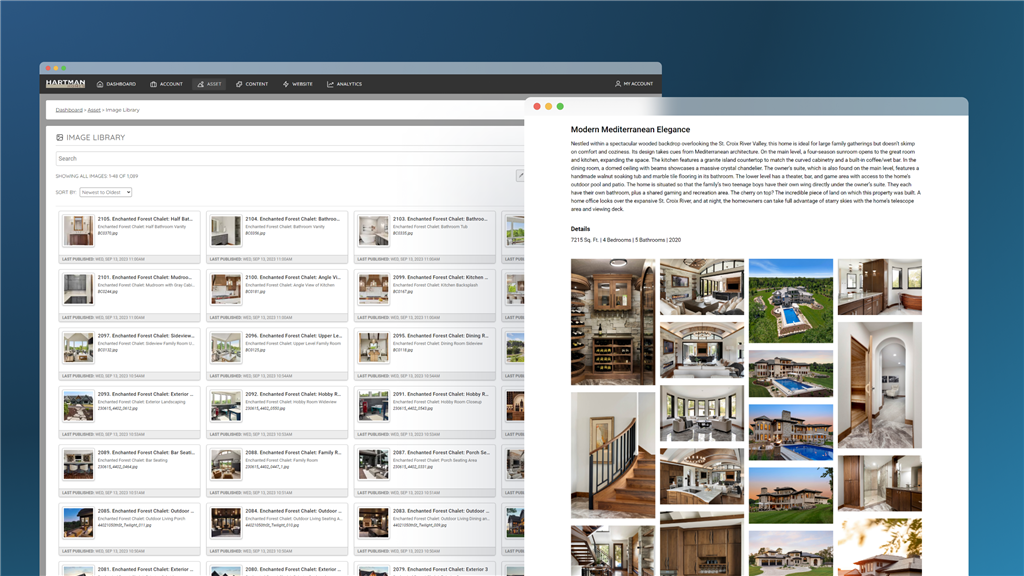What is a Content Delivery Network?
A Content Delivery Network (CDN) is a system of distributed servers located across various geographical locations. The primary purpose of a CDN is to deliver content to users as quickly and reliably as possible by reducing the physical distance between the server and the user.
When a user accesses content online—whether it’s a website, video, image, or application—the CDN ensures that the content is served from a server that is geographically closest to them. This minimizes latency, reduces load times, and enhances the overall user experience.
The Basics of How a CDN Works
To understand how a CDN works, it’s helpful to break down the process into a few key steps:
- Content is Distributed Across Multiple Servers: When you use a CDN, your website’s static content (such as images, videos, CSS files, and JavaScript) is copied and distributed across a network of servers around the world. These servers, often referred to as edge servers, are strategically placed in data centers across different regions and continents.
- User Requests are Routed to the Nearest Server: When a user tries to access your website or content, their request is automatically routed to the nearest edge server in the CDN. For example, if your website is hosted in the United States but a user is accessing it from Europe, the CDN will serve the content from a server in Europe, rather than from the U.S.
- Content is Delivered to the User: Once the request reaches the nearest server, the content is delivered to the user quickly and efficiently. This reduces the time it takes for the content to load, leading to a faster and smoother user experience.
- Dynamic Content and Cache Management: While static content is stored on edge servers, dynamic content (such as personalized user data or real-time updates) is still generated by the origin server (the main server where your website is hosted). The CDN works by caching dynamic content whenever possible and updating it regularly to ensure users always receive the most current version of the content.
Key Benefits of Using a CDN
CDNs offer several key benefits that make them an essential component of modern web infrastructure:
- Improved Load Times: By serving content from servers that are closer to the user, CDNs significantly reduce latency and improve load times. This is particularly important for users accessing content from different parts of the world, as it ensures a consistent and fast experience for all users, regardless of their location.
- Enhanced Reliability and Uptime: CDNs are designed to handle large volumes of traffic and can distribute the load across multiple servers. This reduces the risk of a single server becoming overwhelmed, which can lead to downtime. Additionally, if one server goes down, the CDN can automatically reroute traffic to another server, ensuring uninterrupted access to your content.
- Scalability: As your website or application grows, a CDN can easily scale to accommodate increased traffic. CDNs are built to handle sudden spikes in traffic, such as during a product launch or a viral event, without compromising performance.
- Better Security: CDNs provide an additional layer of security by protecting your website from Distributed Denial of Service (DDoS) attacks, which aim to overwhelm your server with excessive traffic. Many CDNs also offer features like SSL/TLS encryption, Web Application Firewalls (WAF), and bot protection to further enhance your site’s security.
- Reduced Bandwidth Costs: By offloading the delivery of content to edge servers, a CDN can help reduce the amount of bandwidth your origin server consumes. This can lead to lower hosting costs, especially for websites with high traffic volumes or those serving large files like videos or high-resolution images.
Real-World Examples of CDN Usage
CDNs are used by a wide range of websites and services to improve performance and reliability. Here are a few examples of how CDNs are commonly used:
- E-commerce Websites: Online retailers use CDNs to ensure that their websites load quickly, no matter where their customers are located. This is crucial for providing a seamless shopping experience and reducing cart abandonment rates.
- Streaming Services: Video streaming platforms like Netflix, YouTube, and Hulu rely on CDNs to deliver high-quality video content to users around the world without buffering or interruptions.
- News Websites and Blogs: Media outlets use CDNs to deliver content quickly to readers, especially during high-traffic events like breaking news or major announcements.
- Global Enterprises: Large companies with a global presence use CDNs to ensure that their corporate websites, internal applications, and customer-facing services perform optimally in all regions.
How to Choose a CDN Provider
If you’re considering using a CDN for your website or online service, there are several factors to consider when choosing a provider:
- Geographic Coverage: Ensure the CDN has a broad network of servers in the regions where your audience is located. The more edge servers a CDN has, the better it can serve your content quickly.
- Performance and Speed: Look for a CDN provider that offers high-performance servers and low latency. Many CDN providers offer free trials or testing tools to help you evaluate their performance.
- Security Features: Consider the security features offered by the CDN, such as DDoS protection, SSL/TLS encryption, and WAF. These features are essential for protecting your website and user data.
- Pricing and Scalability: Evaluate the pricing model of the CDN provider, especially if your website experiences fluctuating traffic levels. Some CDNs offer pay-as-you-go pricing, while others may have fixed monthly plans.
- Customer Support: Reliable customer support is crucial, especially if you encounter issues with your CDN. Look for a provider that offers 24/7 support and has a good reputation for resolving issues promptly.



